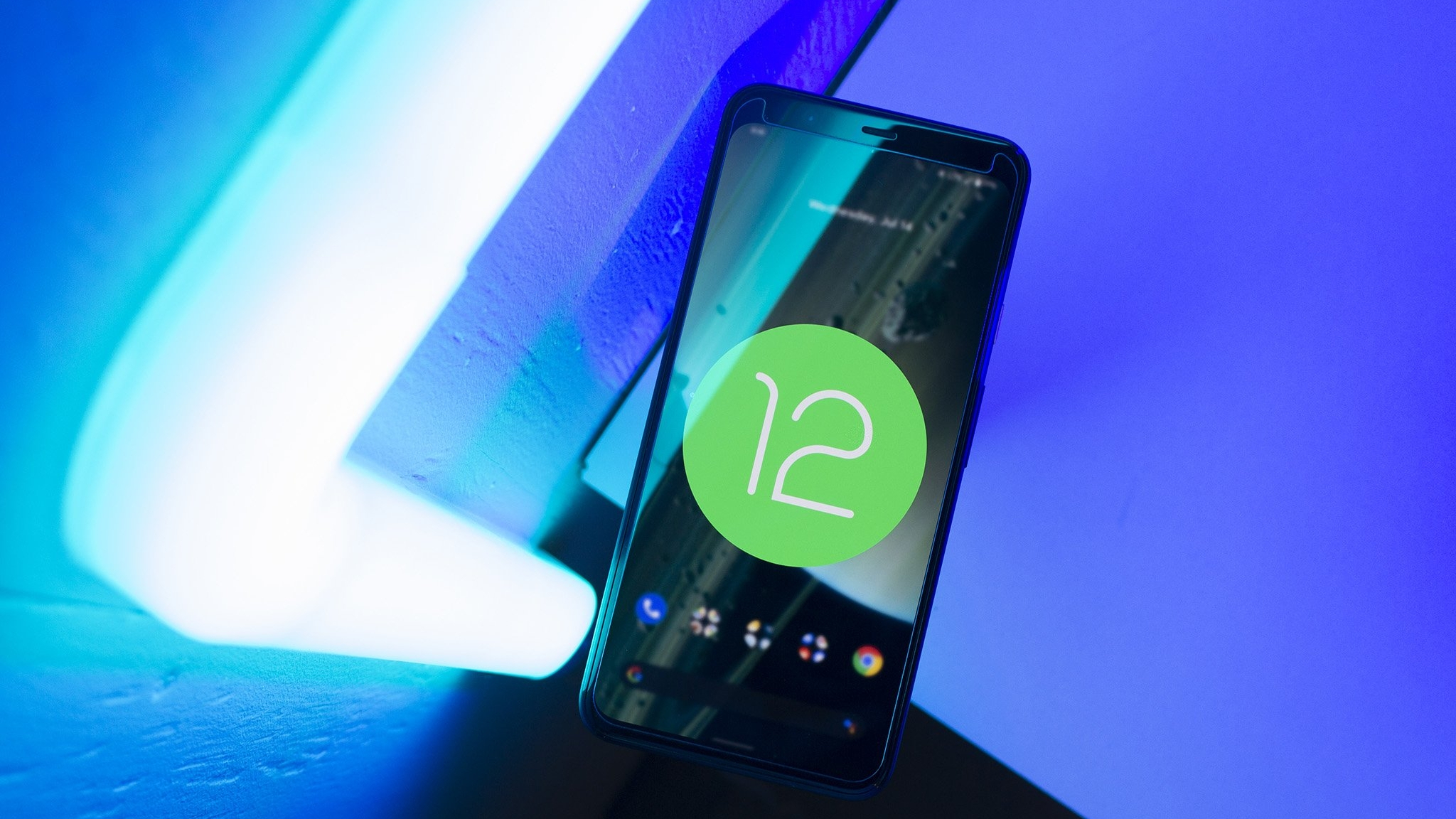Authors have mixed feelings on Amazon Kindle Vella and its token system
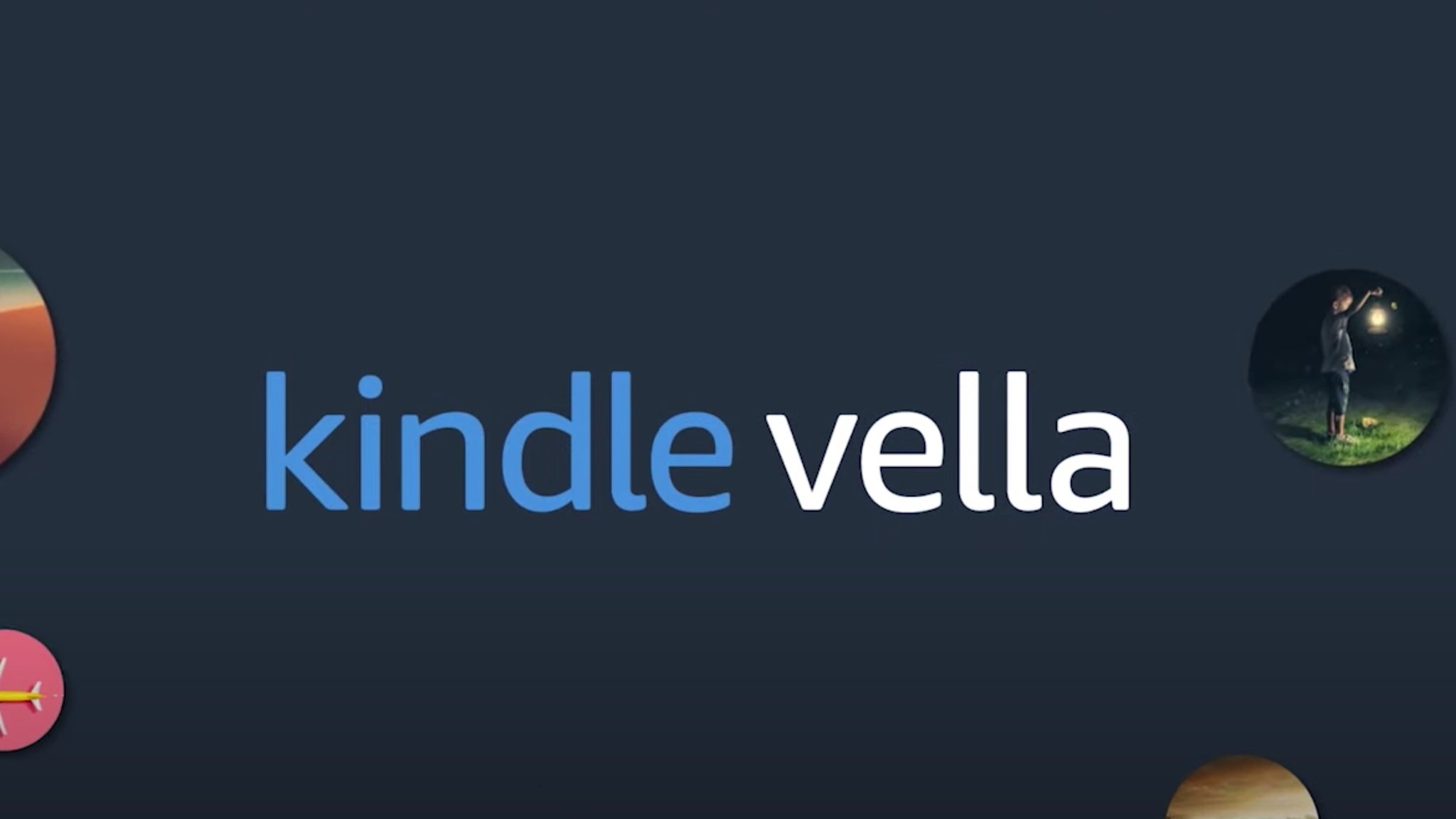
With all of the hubbub around Apple's Spring Loaded event, as well as new Fitbit, and Samsung announcements over the past few weeks, you may not have noticed a possible paradigm-shifting move that Amazon made with its Kindle e-book platform. Amazon's new Kindle Vella service is slowly rolling out in a testing phase right now, but it could change how many of us consume the written word moving forward.
What is Amazon Kindle Vella?
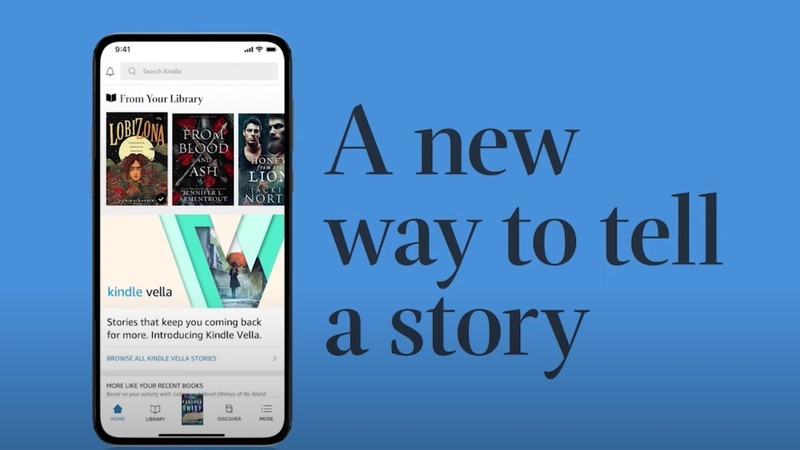
At its core, Kindle Vella is a new way to experience reading through Amazon that promotes serialized storytelling. If that sounds like the experience of watching a television/streaming series, you're not far off. The idea is that authors will periodically publish chapters (or "episodes") and release them via Kindle Vella to their readers, who will subsequently pay to access each new chapter/episode as they come out.
In order for readers to "unlock" new content, they will have to pay with tokens rather than directly with money. The amount of tokens required depends on the chapter/episode length, and readers will be able to purchase token packs in several different amounts. According to Amazon, you can estimate that you will need to spend one token for every 100 words of content. It's much like the idea of buying coins as in-app purchases in one of the best Android games, or even Amazon's own Coins that it uses as a sort of currency on its Fire tablets. Authors will receive 50% of what readers spend on tokens, though the first few episodes of each story are generally free.
There is also a heavy social/crowdsourcing component to Kindle Vella. Stories are tagged by topic and genre, and readers can like and "fave" stories, making them more visible to the larger community in a similar manner to the way upvotes work on Reddit. Authors can also "break the fourth wall," as Amazon says, and directly engage with their readers within the app through the Author Notes feature.
Authors cannot publish content that is in the public domain or otherwise freely available on the web. They are permitted to publish Kindle Vella content elsewhere so long as it's not "freely available."
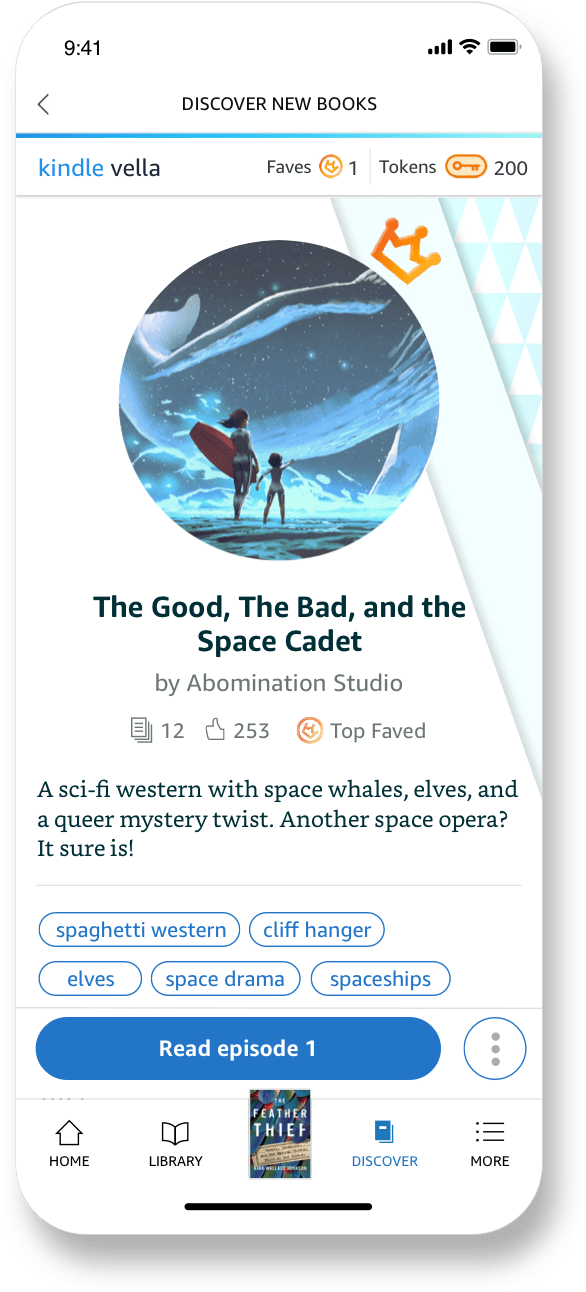
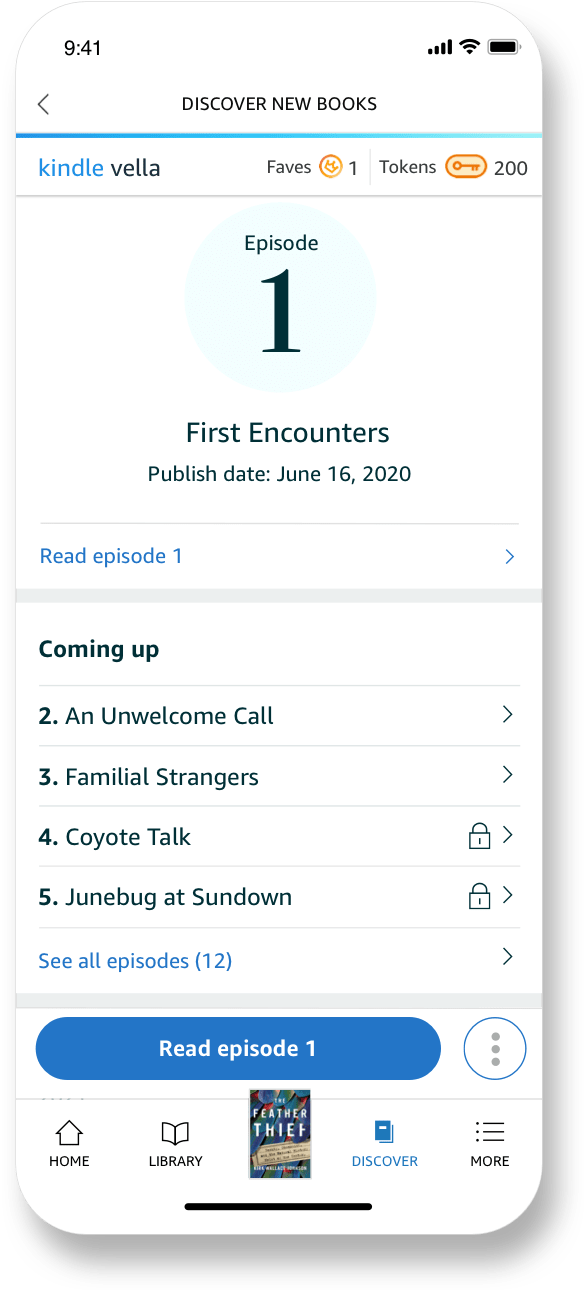
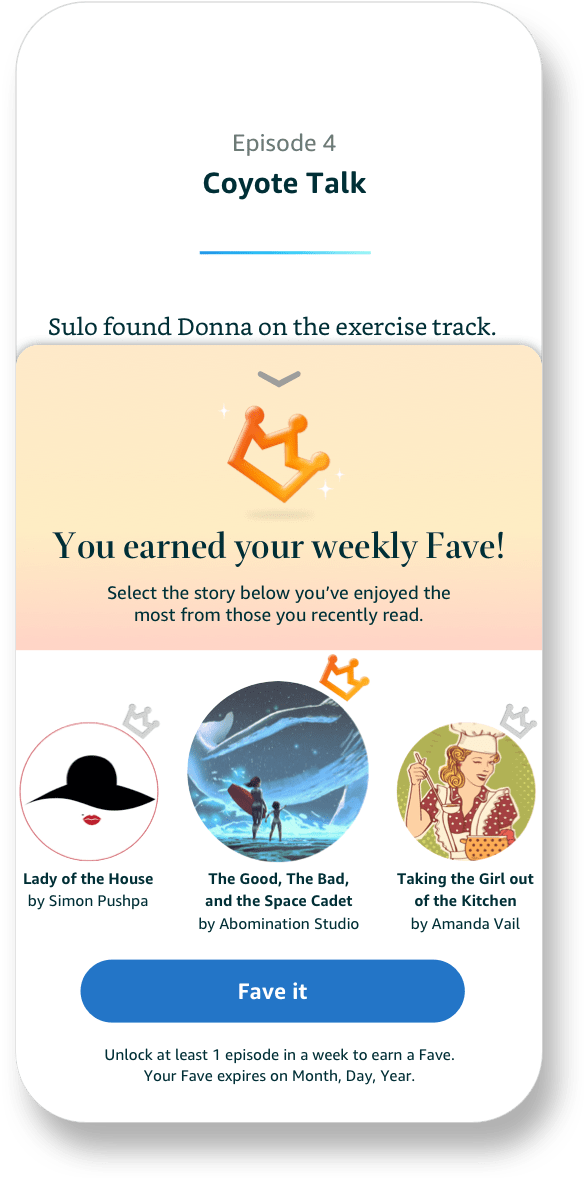
Source: Amazon
Kindle Vella is still in its introductory phase and is rolling out to readers over the next several months. Initially, it will only be available in the Kindle iOS app and on the web, but if it's a success, it should come to other platforms like Android, and even Kindle e-readers, shortly thereafter.
Be an expert in 5 minutes
Get the latest news from Android Central, your trusted companion in the world of Android
The idea of serialized fiction is not a new one, and this exact format and platform have been in use for many years at this point. The most commonly known example is from a Canadian company called Wattpad. Founded in 2006, Wattpad offers a platform for writers and cross-platform apps to experience and enjoy serialized storytelling. Webtoon is a comic platform built on the same concept, allowing creators to build followings and even monetize their comics by having Fast Pass episodes you can unlock with Coins for X days before they become free to read.
Supporting creators directly has also been an idea that has been gaining a lot of traction over the past few years, popularized by Patreon and Substack, and even extended into other content areas by sites like OnlyFans. Large media companies like Apple and Spotify are also trying to get a piece of this action, with new creator tools and monetization options in their podcast platforms.
Given this growing trend and the fact that our attention is as short and divided as ever, it certainly makes sense that Amazon wants to find additional ways to attract and retain readers to its dominant Kindle platform.
How do authors feel about Kindle Vella?

At first, my reaction to the Kindle Vella model was tepid at best. I wasn't excited by the prospect of paying per chapter/episode and was worried that this might signal a change in how I had to consume e-books. However, after I got over my initial bristling at the concept, I started to understand how it might really appeal to some people. After all, this distribution model plays right into that dopamine hit that we all get when a new podcast episode drops or when our favorite YouTuber releases a new video.
Kindle Vella seems like it could be a good option for many creators, but I'm not sure that consumers really benefit here.
The initial information about Kindle Vella isn't meant for consumers, though; it's directed towards creators. As such, I was curious how authors — and in particular independent authors — felt about this platform. Would they be excited by the creative possibilities? How would they feel about the monetization options? I reached out to one of my colleagues, who is an author, and two other authors that I came across on YouTube who had already published videos on this very topic to gauge their reactions to Kindle Vella. Here is some of what they had to say.
Jen Karner writes for Android Central and its sister sites, but she is also an independent author specializing in the fantasy genre and whose debut novel Cinders of Yesterday is set to come out June 29, 2021. When asked about Amazon's intentions behind Kindle Vella, Karner was a bit skeptical. She said that Amazon hasn't always acted in the best interests of authors or publishers, arguing that Amazon traditionally "is not the good guy when it comes to books... it puts small shops out of business and undercuts authors."
Karner brought up an excellent point that I, as a reader/consumer, hadn't thought of regarding monetization. One of the common criticisms about in-app purchases like coins in games is that they obscure how much the consumer is spending and make it likely that they will spend far more than they might have if the transactions were solely based on traditional currency. They are particularly addictive for younger and much older audiences. But Karner mentioned that this hazy monetization scheme could also possibly mislead authors and creators into thinking that they'll do better financially on a serialized, siloed platform like Vella than they would via more traditional distribution channels.
YouTuber and Indie Author Keylin Rivers on Kindle Vella
Staying on the monetization topic a bit, Keylin Rivers is the author of All the King's Traitors and also operates her own YouTube channel. She did an epic explainer video on Kindle Vella and what it means financially for both authors and readers. I've linked that video above, so if you're interested in drilling down on that topic, skip to around the 6:50 mark onwards.
In her explainer video, Rivers analyzes how Kindle Vella royalties compare to those from regular Kindle e-books. She shows how the strategy of tokens might work for authors to make more money than through traditional Kindle publishing, but that it could end up costing the reader nearly two to three times as much to read an entire novel on Kindle Vella as it would as a regular Kindle e-book. While she acknowledges this is a good thing from an author's perspective, she feels like it can be a bad experience for the consumer. These "microtransactions are quite exploitative because people who are purchasing aren't aware of what they are spending," says Rivers, elaborating that "you lose track of how much you're spending so quickly."
YouTuber and Indie Author Bethany Stahl on Kindle Vella
Bethany Stahl is another independent writer who primarily publishes children's stories and is known for her Save the Earth series. Stahl says that she thinks "any new way to put work into the world and make a profit is a great thing for indie authors. It will also put pressure on other platforms to rival terms and royalties and continue to provide better options for authors." Stahl says that while she hasn't experimented with writing in this style much before, she is a fan of the format "I love it, and serialized fiction has shown a lot of success for authors who publish this way on similar platforms that already exist."
The authors I spoke with were not overly enthusiastic about the Kindle Vella financial model for creators or consumers.
However, when asked about the monetization strategy, Stahl wasn't as positive, echoing the concerns of the other authors I spoke with. "I don't think the monetization option is great. In my opinion, the platform is built for authors to only see decent profits from their work from lengthy serials and extremely high reader engagement." Stahl also says that she's not too fond of the token model of payment from the consumer's perspective either. "I'd personally rather pay actual dollar amounts per episode... as we all know from the arcade days, having those extra tokens... urges you to buy more, even if you weren't planning on it."
Will Kindle Vella be a success?
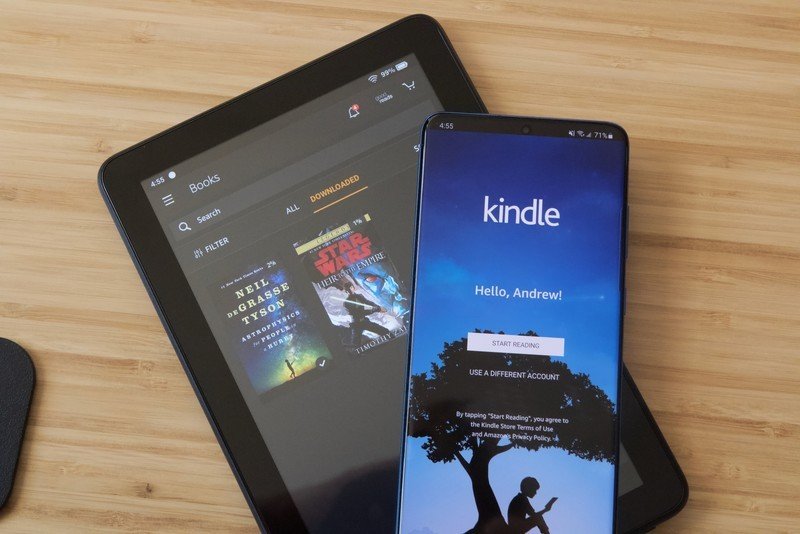
Karner told me that she thinks that Kindle Vella is "geared towards authors who want to make money but don't have a traditional path to success" and that it will serve "hybrid" authors best — those who follow a strategy that is a mixture of self-publishing and traditional publishing. She also expressed concern that Amazon might stomp out competition like Wattpad, but others like Stahl and Rivers aren't as worried. "I think it will put pressure on other platforms to improve their own terms and offerings... but I don't see indie authors veering away from other platforms so much as they will add Kindle Vella to their tool belt," says Stahl. Rivers was also cautiously optimistic, saying that "Amazon is so massive it could open new doors to authors who hadn't considered this form of publishing before."
Even though it wasn't first, Amazon is so large and so important in the book world that it's hard to imagine Kindle Vella not having a huge impact on writers and readers alike. Personally, I'm not a fan of this method of content consumption, but I do like the idea of supporting authors and creators directly and look to do more of this in any way I can, whether that be supporting my local independent bookstore or subscribing to my favorite creator's Patreons.
What do you think about Kindle Vella? Does this model of reading appeal to you? Do you think you're more likely to support independent authors on this platform or via other models? Let us know!

Jeramy was the Editor-in-Chief of Android Central. He is proud to help *Keep Austin Weird* and loves hiking in the hill country of central Texas with a breakfast taco in each hand.



